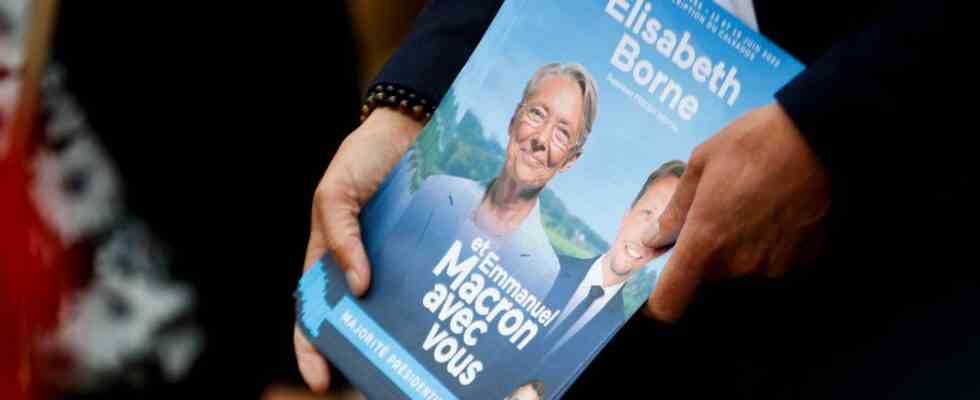DecryptionsMore than 75% of voting intentions are divided between the presidential majority, Nupes and the far right, according to the eleventh wave Ipsos-Sopra Steria, in partnership with “Le Monde”.
The balance of power resulting from the first round of the presidential election is about to draw the profile of the next National Assembly. Three weeks before the first round of the legislative elections, more than 75% of voting intentions are divided between the presidential majority under the Together banner (Renaissance, MoDem, and Horizons: 28%, margin of error of plus or minus 1.1 point), the New Popular, Ecological and Social Union (Nupes) – bringing together La France insoumise (LFI), Europe Ecologie-Les Verts (EELV), the Socialist Party (PS) and the French Communist Party (PCF), 27%, same margin of error – and the National Rally (RN, 21%, margin of error of plus or minus 1 point). If we add the votes that the candidates stamped Reconquête!, the party of Eric Zemmour (6%, margin of error of plus or minus 0.6 point), would collect, then the far-right bloc would represent around 27% voting intentions.
As a reminder, on the evening of the first round of the presidential election, 27.8% of French people had voted for Emmanuel Macron, 23.1% for Marine Le Pen and 21.9% for Jean-Luc Mélenchon. The persistence of this political tripartition is the main lesson of the eleventh wave of our electoral survey conducted by Ipsos-Sopra Steria, in partnership with the Sciences Po Political Research Center (Cevipof) and the Jean Jaurès Foundation for The world.
The strength of our panel is its amplitude, since the sample used is 11,247 people. Voting intentions are calculated from respondents “certain to vote having expressed an intention to vote”, or 6,285 people. Result: the margin of error is very low (between 0.2 point and 1.1 point). The survey was carried out from May 16 to 19, that is to say after the conclusion of the electoral alliance of the parties of the left of government and the appointment of Elisabeth Borne as Prime Minister, but before the announcement of the government.
A tripartition leaving little room for competition
This new balance of political forces leaves little room for competition. The first to suffer is the Les Républicains (LR) party, allied with the centrists of the Union of Democrats and Independents (UDI). Like the disastrous result of its presidential candidate, Valérie Pécresse (4.78% of the vote), the right of government is in an unprecedented state of weakness with 9% of the voting intentions (margin of error of more or less 0.7 points).
Each of the three poles resulting from the presidential election seems to suck up the forces of its political space. Thus, a majority of left-wing voters in the presidential election will vote for a Nupes candidacy in the legislative elections; 86% of Jean-Luc Mélenchon voters surveyed will choose a Nupes ballot on June 12. A shadow on the board remains: the socialists and the communists are the least convinced by the alliance tied around the slogan “Melenchon Prime Minister” and a “shared program” where many programmatic contradictions remain, in particular on the European Union, the exit from nuclear power or even societal themes such as police violence.
You have 56.08% of this article left to read. The following is for subscribers only.

